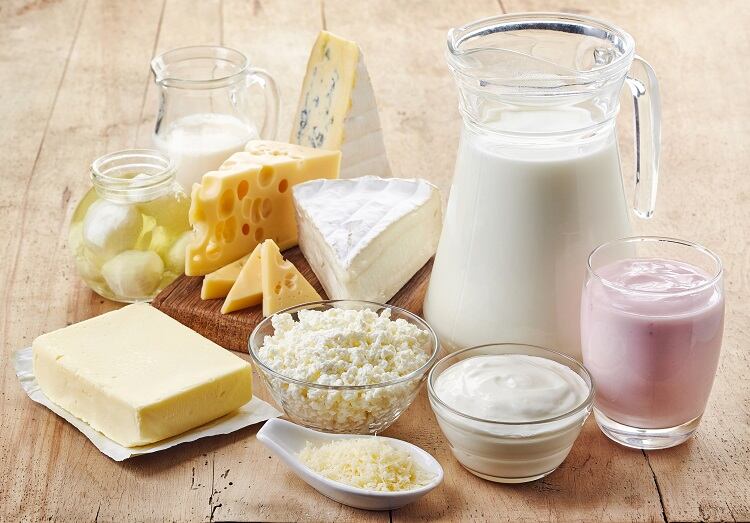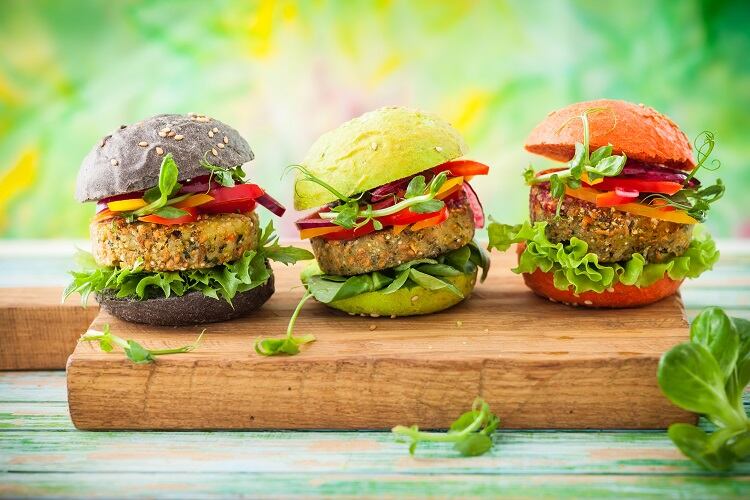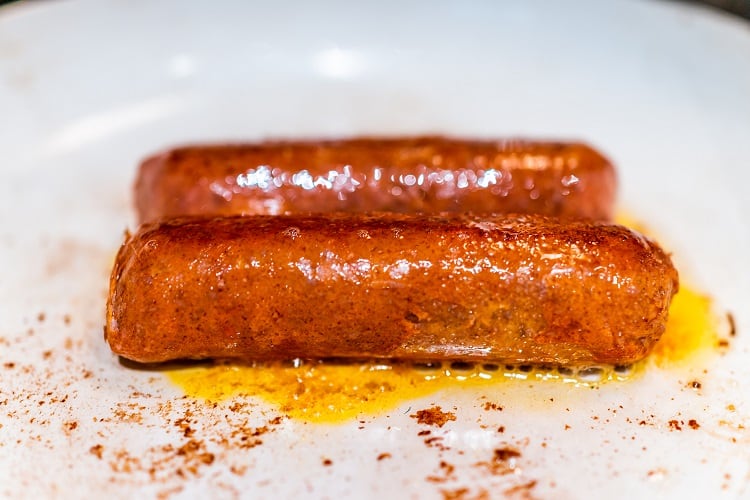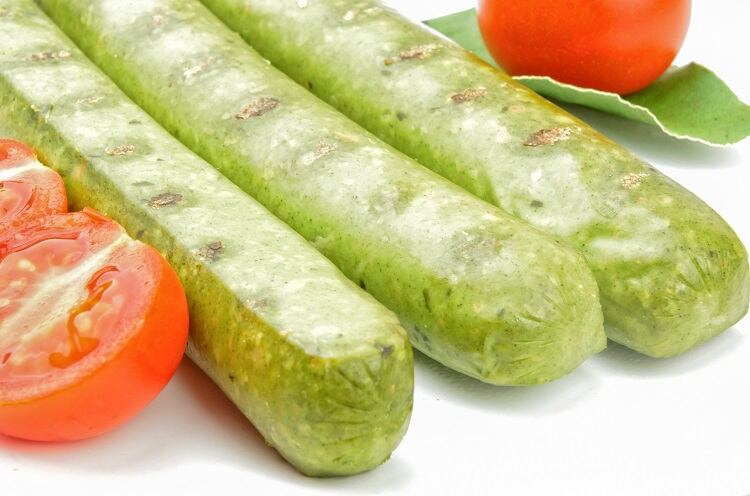Next week, the European Parliament is expected to cast its final vote on two proposals concerning the names used to describe plant-based meat and dairy alternatives.
If amendment 165 is approved, vegetarian and vegan offerings could no longer be branded ‘burger’, ‘sausage’, ‘steak’, or ‘escalope’. Rather, the ban could see veggie burgers renamed ‘veggie discs’, and veggie sausages as ‘veggie tubes’.
Amendment 171 concerns dairy-related terms. If passed, terms such as ‘almond milk’, ‘vegan cheese’, as well as ‘yogurt-style’ and ‘cheese alternative’, would be banned for plant-based dairy alternatives across the bloc.
Why the ‘meaty’ name backlash?
The issue of meat-related terminology being used for meat-free products, and similarly, dairy-related terms for plant-based alternatives, has long been discussed in the EU.
In 2017, the European Court of Justice (ECJ) judged that purely plant-based products could no longer use dairy names such as ‘milk’, ‘butter’, ‘cheese’, or ‘yogurt’ – with the exception of coconut milk, peanut butter, almond milk and ice cream.
The issue has also been debated in the UK, the Netherlands, Germany and France, with the latter’s government pushing for the ban of ‘meaty names’ for foodstuffs containing vegetable proteins.
The argument against ‘meaty names’ lies in concerns consumers are deceived by plant-based products’ branding, posing a risk to both public health and consumer protection.

Indeed, Nick Allen, who heads up UK trade organisation the British Meat Processors Association (BMPA), says labels such as ‘meat-free meatballs’ and ‘vegetarian hoi sin duck’ can mislead consumers, and ‘play tricks on them’.
“People may well buy [products presented as meat substitutes] on the assumption they are giving the same nutritious benefits that they would get from eating meat,” he told FoodNavigator.
“In truth, these so-called meat substitutes are often, through intensive processing, creating something that just looks like meat.”
If the legislation is passed, the BMPA said it will ‘watch with interest’, especially to see if that decision prompts an appetite in the UK for similar legislation.
“We would always advocate that it should be made very clear that they are vegetarian products. They should not imply that they are a substitute or replacement for the nutritional benefits you get from eating meat, unless they can prove that is the case,” Allen told this publication.
“We would venture to suggest that if the boot was on the other foot and the meat industry started creating, for example, a meat product that looked like a carrot or some other vegetable and called them ‘meat carrots’, there would be a massive outcry from certain quarters and, I suspect, calls to ban the products. It is clearly not just a concern in the EU, there is talk of legislation being introduced in the US, it possibly is time for legislators to have a closer look at what is happening.”
A ban would be a ‘hollow victory’, says meat market expert
Rupert Claxton, Meat Director at consultancy and market research firm Gira, is not convinced consumers are unintentionally purchasing plant-based products labelled ‘burger’ and ‘almond milk’, believing them to be conventional products.
“I don’t think the consumer needs it to be called a burger to identify it for what it is – a burger, but not beef-based,” Claxton told FoodNavigator.
Suggesting that the meat and dairy sector perceive this ban as a way to ‘ward off the competition’ – the booming plant-based market is predicted to increase from €1.5bn in 2018 to €2.4bn by 2025, according to Allied Market Research – Claxton said meat and dairy sectors could be disappointed by the long-term effects of these proposals.

“I think the industry feels this is the basis for a magic bullet…but the reality is that [the plant-based competition] argument has long since sailed, and the products are now established.
“If you look at dairy, [dairy alternative brand] Oatly doesn’t need to put ‘milk’ on their carton, the consumer understands what it is.
“So I think it will be a hollow victory, if it is indeed a victory.”
Petition to stop ban reaches 150,000 signatures
ProVeg International, which aims to reduce global animal consumption by 50% by 2040, is similarly sceptical of consumer confusion in the plant-based burger, sausage, and dairy alternative categories.
“There is absolutely no evidence to suggest that consumers are confused or misled by the current labelling of vegetarian and vegan products,” said vice president Jasmijn de Boo. “On the contrary, there is strong evidence to suggest that renaming them would create confusion.”
ProVeg has launched a petition to stop the ban, which has attracted over 150,000 signatures to date.
“Plant-based meat alternatives have been on the market for at least a century in Europe – and for far longer in other parts of the world. They have long been marketed as veggie sausages and veggie burgers, and this has never been a problem.
“It is only now that these products have made their way into mainstream supermarkets and are expanding their sales footprints across the EU that stakeholders from traditional animal-based industries are calling for a legal ban,” said de Boo.
The ‘food awareness’ organisation argues that the terms ‘burger’, ‘sausage’ and ‘cheese alternative’ on meat- and dairy-free products serve important functions in communicating characteristics to consumers at point of purchase, particular in terms of taste and texture.
“Just as we know full well that there is no butter in peanut butter, no cream in coconut cream, and no mince in mincemeat, consumers know exactly what they’re getting when they purchase veggie burgers or veggie sausages.”




